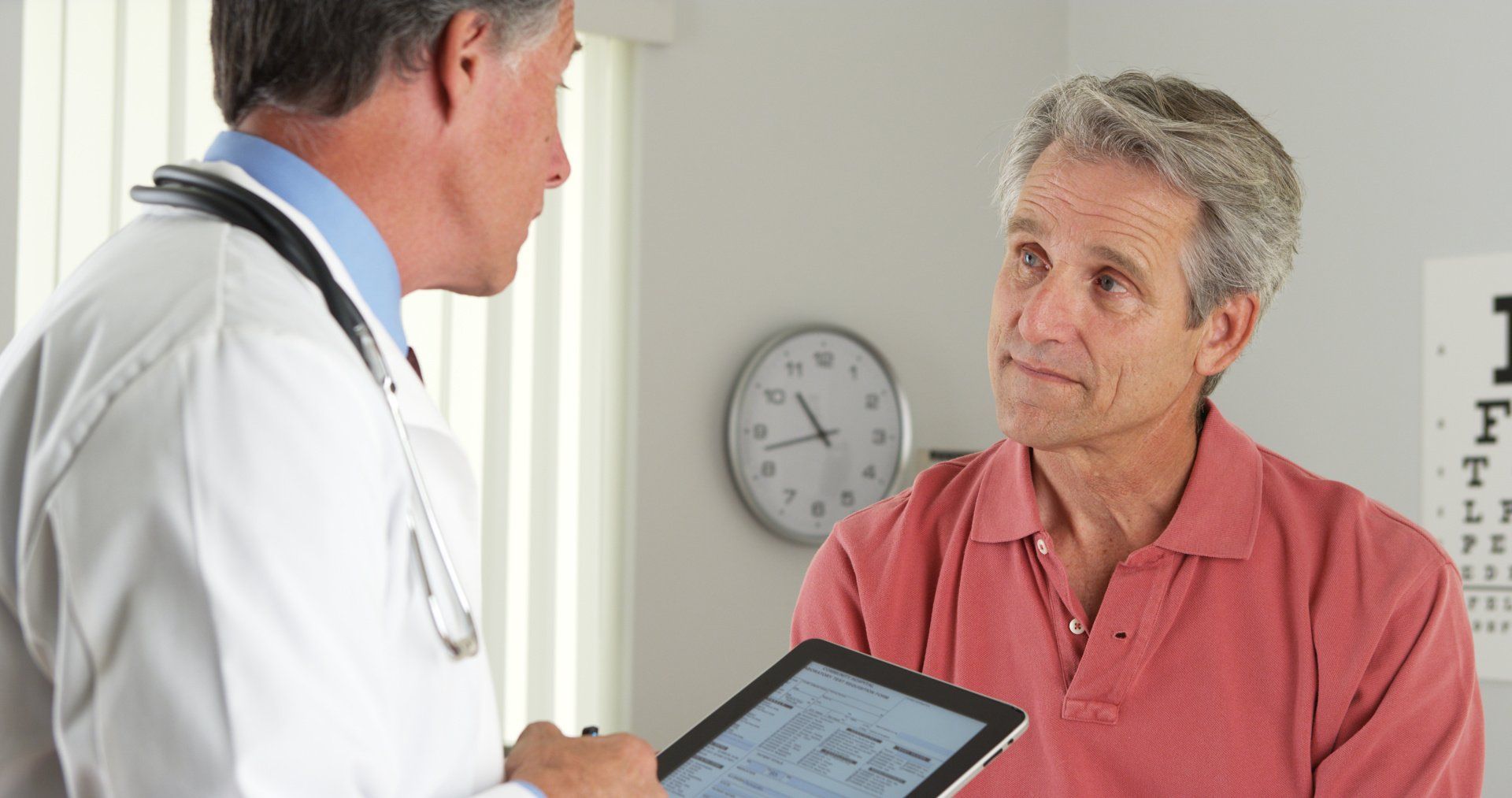COLON CANCER IN NORTHWEST FLORIDA
The colon, also referred to as the large intestine, plays a significant role in not only the body’s digestive system, but its overall health. Cancer that develops in the colon is typically found in older adults and begins as a small, noncancerous, or benign, cell cluster that presents itself as polyps within the large intestine.
HAVE QUESTIONS ABOUT COLON CANCER?
-
What is Colon Cancer?
Colon cancer, or colorectal cancer, is a type of cancer that develops in the large intestine. This type of cancer develops from benign cell clusters inside of the colon know as polyps, and without screening or intervention, can become malignant over time.
-
What are the Symptoms of Colon Cancer?
Colon cancer can have a variety of symptoms. A constant change in bowel habits is a common attribute of colorectal cancer. This can range from diarrhea to constipation or a variance in your stool’s consistency. Rectal bleeding, or blood in your stool, is another common sign. Fatigue, weakness, unexpected weight loss, and persistent abdominal pain are other signs.
-
When Should You See a Gastroenterologist for Colon Cancer?
The best decision you can make if you’ve experienced any of the aforementioned symptoms is to see a gastroenterologist. Even if you don’t have colon cancer, there could be an underlying gastroenterological condition that can be treated. If you are over the age of 50, an annual colonoscopy and colon cancer screening should be a part of your healthcare regimen. Depending on your family history and other risk factors, this screening may need to begin earlier, or be a more frequent appointment.
-
What are the Risk Factors for Colorectal Cancer?
There are several risk factors that can increase the likelihood of developing colon cancer.
- Inflammatory Intestinal Conditions – Chronic digestive conditions like Crohn’s Disease and ulcerative colitis have a tendency to have an enhanced risk of colon cancer development.
- Advanced Age – While this type of cancer can develop at any age, it is most typical in those over the age of 50.
- Family History – If you are directly related to a family member that has been diagnosed with colon cancer, you chances of developing this disease increase.
- Cancer survivors who had received radiation therapy in the abdomen and pelvis in childhood or as adults are at significantly increased risk of subsequent gastrointestinal neoplasms, the majority being CRC.
- Patients with history of cystic fibrosis
- Patients with Acromegaly.
- Patient with history of renal transplantation, in association with long-term immunosuppression, has been linked with increased risk of colon cancer.
- Sedentary Lifestyle – Inactivity can increase the likelihood of colon cancer. Typically more active individuals are less likely to develop this disease.
- African-American Lineage – Genetically, African-Americans have a greater chance of being diagnosed with colon cancer than other races.
- Poor Diet – An unhealthy diet, specifically a Western diet, which is based on low-fiber and high fat contents, provides a greater risk for colon cancer. Studies have shown an increased risk for those that eat more red and processed meats.
- Drinking – Heavy alcohol use can increase your risk for colon cancer, in addition to other health concerns.
- Smoking – Smoking is a general health concern that can also enhance the chances of developing colon cancer.
- Diabetes – Insulin resistance or a diabetes diagnosis has been linked to an increased risk of colon cancer.
- Obesity – Obese patients, compared to those at healthy weights, have a higher risk of developing colon cancer. Furthermore, these patients also have a higher likelihood of dying from the disease.
-
How Can Colon Cancer be Prevented?
Colon cancer prevention begins with screening. Patients with an average risk should begin annual screenings at the age of 50. A colonoscopy is the most thorough and common way to screen for colon cancer. Consult your gastroenterologist for the best course of action based on your specific scenario.
Lifestyle changes can also prevent the development of colorectal cancer. Improving your diet with fruits, vegetables, and whole grains can provide a variety of vitamins. Minimizing drinking alcohol and quitting smoking, with the addition of exercise are all lifestyle choices that can help to prevent colon cancer, and enhance your overall well-being.
READY TO SCHEDULE AN APPOINTMENT?
COLONOSCOPY BLOG

CONTACT
850-763-5409
ADDRESSES
4 LOCATIONS
204 E 19th Street, B, Panama City
12216 Panama City Beach Pkwy, D, Panama City Beach
4295 3rd Ave, Marianna
101 Good Morning St., 109B, Port St. Joe
Subscribe to our newsletter:
subscribe to our newsletter
We will get back to you as soon as possible.
Please try again later.


![Patient Risk Factors for Colorectal Cancer [INFOGRAPHIC]](https://lirp.cdn-website.com/af462fbe/dms3rep/multi/opt/AdobeStock_178250352-1920w.jpeg)